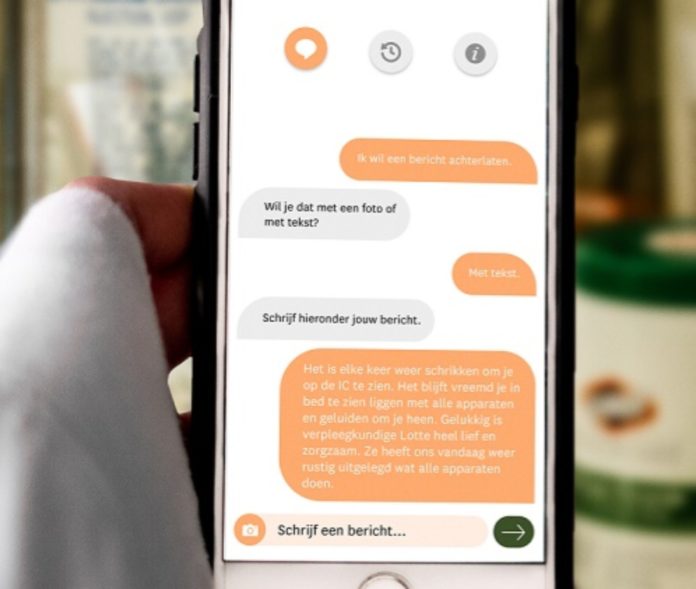Dutch ICUs are running at full steam at the moment. That is due to the corona crisis. The ‘Post-ICU diary for tomorrow’ is, therefore, more important than ever.
This app was developed by Dr Marc Buise. He is anaesthesiologist at Catharina Hospital. Patients who’ve been in the ICU often have long-lasting complications from their stay. This is known as Post Intensive Care Syndrome (PICS). For the patient, the time after leaving the hospital can often lead to severe physical and mental issues. Keeping a digital diary can contribute to processing this period.
This kind of diary’s existed in paper-form in the ICU for some time. According to Catharina Hospital, it’s the only scientifically proven method to reduce PICS. In 2018, Dr Buise partnered with Games for Health. This is an organisation that designs digital ideas for patient-centric care. Together, they started a project to improve the way this diary’s used.
Rolled out on 6 April
During the corona crisis, visits by family and friends to the ICU are severely restricted. That makes it difficult to keep such a physical diary. From Monday, it became a lot easier for patients and families in the hospital. They’re now able to use the digital ‘Post-ICU diary for tomorrow’.
Caregivers can share data with family from a distance. The family can easily create a virtual diary too. This can contain text, photos, film, and sound bytes. The diary also provides links to informative sites. By bundling all these possibilities, a diary can be started immediately upon admission to the ICU. This can make a positive contribution to life after intensive care for both patients and the family.
Lots of support
Zorgverzekeraars Nederland is an umbrella organisation for health insurers in the country. They are aware of the importance of the ‘Post-ICU diary for tomorrow’. Rabobank, too, has indicated it wants to make a contribution in this respect. Under the leadership of Games for Health, this technology was co-created in accordance with the Brainport concept.
Catharina Hospital is the first one in the Netherlands to use the diary. “Several hospitals have already said they’d like to gain access to this diary as soon as possible,” says Buise. “Our dream is that all ICU patients in the Netherlands will be able to use this [technology].”
The Dutch Society for Intensive Care, IC Connect patient organisation, and Family and Patient-Centred Intensive Care (FCIC) Foundation all support this initiative. “We hope this diary will give patients and their loved ones a better foothold in this difficult time,” concludes Buise.
Photo and source: Catharina Hospital
Translation: Melinda Walraven
















